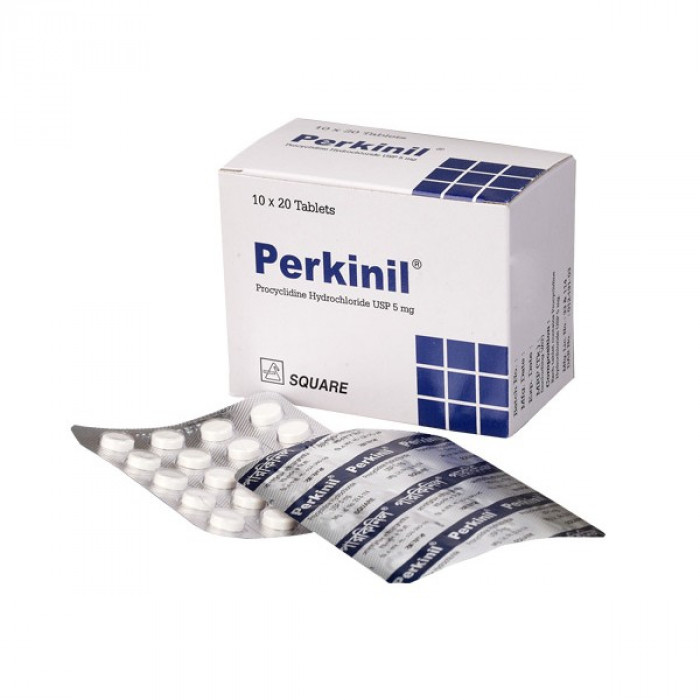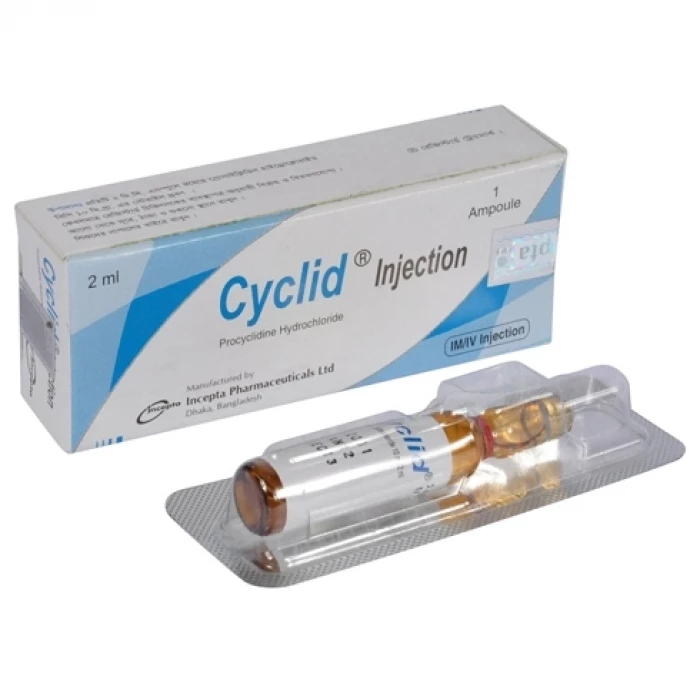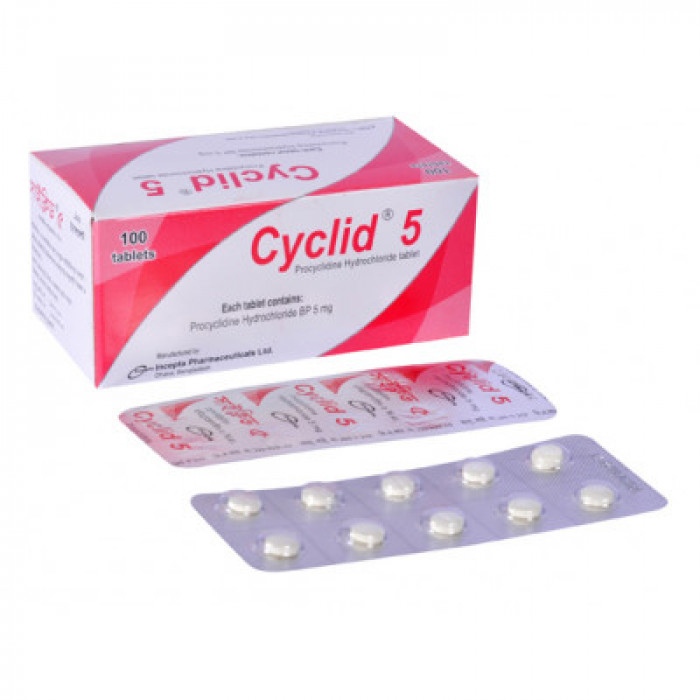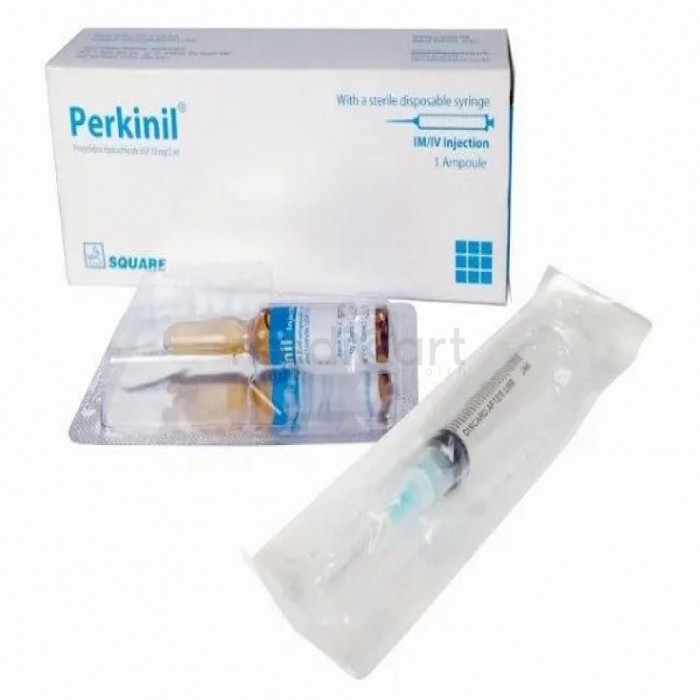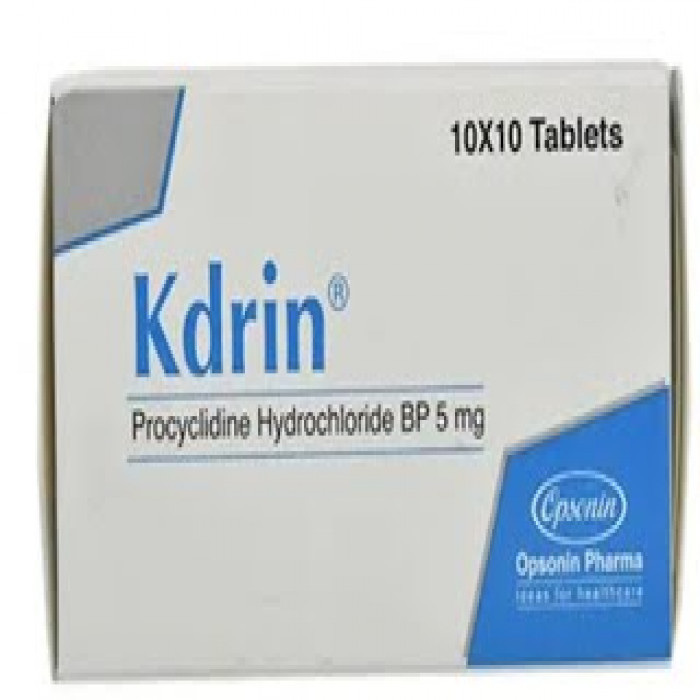
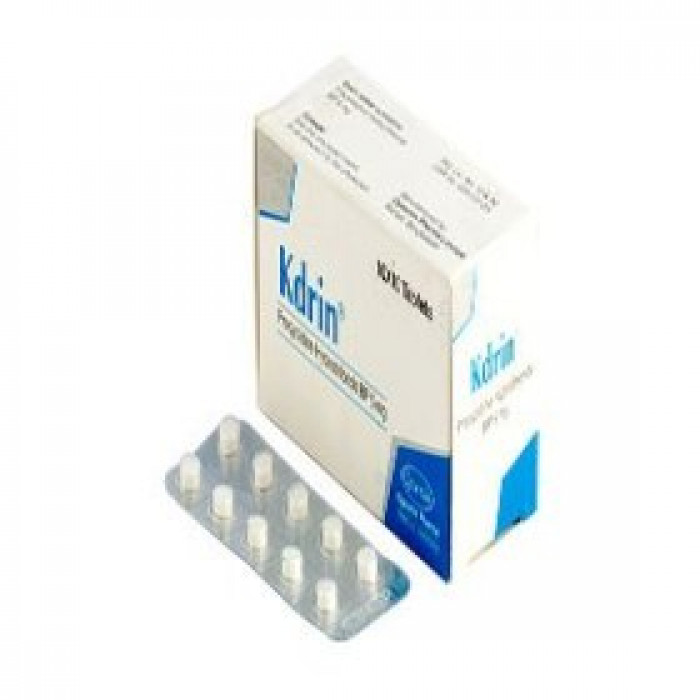
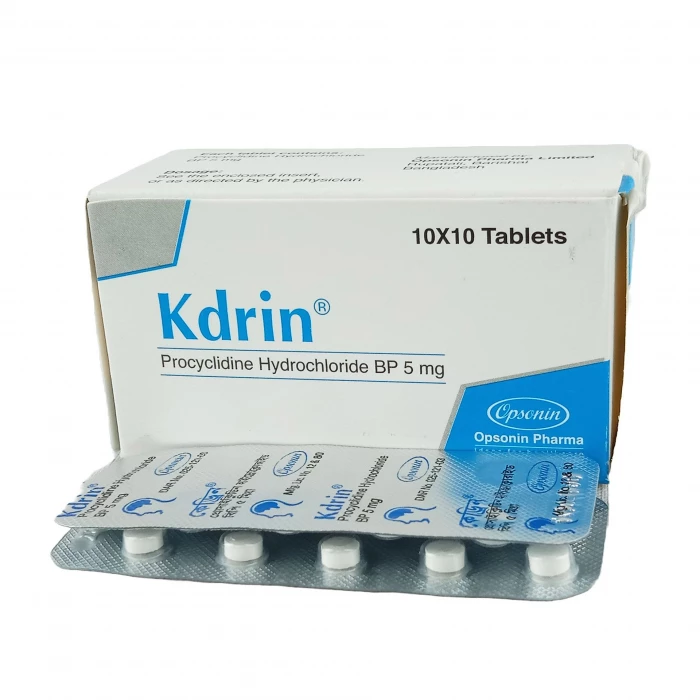
✔ 100% Authentic Product
👁️ Currently Viewing 3411
Kdrine 5mg 10pcs
Tablet Manufacturer/Distributor: Opsonin Pharma Limited Generic Name: Procyclidine Hydrochloride 5 mg Tablet
Discount
Price: ৳ 10
MRP:
৳
10
5%
Off

100% Genuine Products, Guaranteed

Safe & Secure Payments, Always

Fast, Secure & Efficient Delivery

Proper Packaging
 Cash on Delivery - All over Bangladesh
Cash on Delivery - All over Bangladesh Regular Delivery - 12-24 Hours, Dhaka City* Charge Tk.39-59
Regular Delivery - 12-24 Hours, Dhaka City* Charge Tk.39-59 Regular Delivery - 24-48 Hours, Other Cities* Charge Tk.99-110
Regular Delivery - 24-48 Hours, Other Cities* Charge Tk.99-110
🌙 রমযান অফার 🌙
 ফ্রি ডেলিভারিঃ - ৭৯৯ টাকা+ অর্ডারে, ঢাকা
শহরে
ফ্রি ডেলিভারিঃ - ৭৯৯ টাকা+ অর্ডারে, ঢাকা
শহরে ফ্রি ডেলিভারিঃ - ২৭৯৯ টাকা+ অর্ডারে, ঢাকার
বাহিরে
ফ্রি ডেলিভারিঃ - ২৭৯৯ টাকা+ অর্ডারে, ঢাকার
বাহিরে
📲 মোবাইল অ্যাপ অর্ডারে সাশ্রয় বেশী
-
Google Play Store থেকে ডাউনলোড
-
Apple Store থেকে ডাউনলোড
100% Genuine Products, Guaranteed
Safe & Secure Payments, Always
Fast, Secure & Efficient Delivery
Proper Packaging
 Cash on Delivery - All over Bangladesh
Cash on Delivery - All over Bangladesh Regular Delivery - 12-24 Hours, Dhaka City* Charge Tk.39-59
Regular Delivery - 12-24 Hours, Dhaka City* Charge Tk.39-59 Regular Delivery - 24-48 Hours, Other Cities* Charge Tk.99-110
Regular Delivery - 24-48 Hours, Other Cities* Charge Tk.99-110 ফ্রি ডেলিভারিঃ - ৭৯৯ টাকা+ অর্ডারে, ঢাকা
শহরে
ফ্রি ডেলিভারিঃ - ৭৯৯ টাকা+ অর্ডারে, ঢাকা
শহরে ফ্রি ডেলিভারিঃ - ২৭৯৯ টাকা+ অর্ডারে, ঢাকার
বাহিরে
ফ্রি ডেলিভারিঃ - ২৭৯৯ টাকা+ অর্ডারে, ঢাকার
বাহিরে- Google Play Store থেকে ডাউনলোড
- Apple Store থেকে ডাউনলোড
🌙 রমযান অফার 🌙
📲 মোবাইল অ্যাপ অর্ডারে সাশ্রয় বেশী
✅ Description:
Indications
Perkinil® is used for the adjunctive treatment of all forms of parkinsonian syndrome. It is mainly used for the symptomatic treatment of idiopathic (paralysis agitants), postencephalitic and arteriosclerotic parkinsonian. It is used to control troublesome extrapyramidal symptoms including pseudoparkinsonian, acute dystonic reactions and akathisia induced by neuroleptic
drugs such as phenothiazine derivatives.
Pharmacology
Perkinil® (Procyclidine hydrochloride) is an antimuscarinic antiparkinsonian agent of relatively low toxicity. It is a synthetic tertiary amine. This drug exerts their antiparkinsonian effect by correcting the relative cholinergic excess which is thought to occur in parkinsonian as a result of dopamine deficiency. It is absorbed from G.I. tract and disappears rapidly from the tissues. After intravenous administration, it acts within 5 to 20 minutes and has a duration of effect up to 4 hours.
Dosage & Administration
Adults: Perkinil® tablet is administered orally, preferably after meals. Parkinsonism: Initially 2.5 mg 3 times a day, then 5 mg 3 times a day and occasionally 5 mg at bed time. The dosage being adjusted as tolerated or until the total daily dose reaches 20 to 30 mg divided into 3 to 4 doses. Drug induced extrapyramidal symptom: Initially 2.5 mg 3 times a day. The dosage being increased by 2.5 mg increment per day as needed and tolerated. By intramuscular or intravenous injection, 5-10 mg, repeated if necessary after 20 minutes; maximum 20 mg daily can be given.
Children: Safety and efficacy have not been established in the pediatric age group; therefore, the use of procyclidine hydrochloride in this age group requires that the potential benefits be weighed against the possible hazards to children
Interaction
Drugs with anticholinergic amantadine can increase the anticholinergic activity of propicycline. The absorption of ketoconazole can be reduced by the simultaneous use of procyclidine.
Contraindications
Children and elderly patients should be used with caution. Patients with diarrhea and cardiovascular disease, glaucoma, urinary retention, liver or kidney failure should be cautious when taking propacycline. The safety of using procyclidine during pregnancy has not been established. There are no data on excretion of this drug in human milk.
Side-Effects
At the usual dosage levels, dry mouth is usually the only adverse effect. Dilated pupils, blurred vision, and G.I. occasional adverse reactions (nausea, vomiting, epigastric discomfort, constipation). Occasionally, allergic reactions (such as skin rash) or muscle weakness may occur. High doses can cause dizziness and may cause confusion and hallucinations. Generally speaking, adverse reactions can be reduced by adjusting the dosage and administration after meals.
Pregnancy & Lactation
The safe use of this drug in pregnancy, lactation or in women of childbearing age requires that the potential benefits be weighed against the possible hazards to the mother and child.
Precautions & Warnings
Precaution should be taken in case of hepatic & renal impairment, children, elderly, pregnancy, and lactation conditions. Patients with mental disorders occasionally experience precipitation of a psychotic episode when Procyclidine is administered for the treatment of the extrapyramidal side effects of neuroleptic. Procyclidine should not be withdrawn abruptly as rebound Parkinsonism symptoms may occur.
Storage Conditions
Protect from light and moisture, and store below 25°C. Keep out of the reach of children.
⚠️Disclaimer:
At ePharma, we’re committed to providing accurate and accessible health information. However, all content is intended for informational purposes only and should not replace medical advice from a qualified physician. Please consult your healthcare provider for personalized guidance. We aim to support, not substitute, the doctor-patient relationship.




